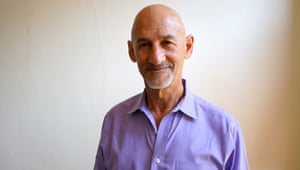Frank Lucido, a California physician, received a phone call in 2012 from a doctor in Colorado.
Like Lucido – one of California’s best-known cannabis-friendly physicians – the Colorado doctor had been writing recommendations for medical marijuana, the paperwork required for patients to access cannabis at medical marijuana retail outlets in his state.
Unlike Lucido, the Colorado doctor was worried about the future of his practice.
Related: California marijuana initiative qualifies for the ballot
There was a legalization measure on the ballot for recreational marijuana in Colorado that fall. If it passed, he was looking for somewhere to move, where he could continue writing recommendations in the semi-legal gray area of medical cannabis.
“What’s the climate in California?” he asked.
Colorado voters did approve Amendment 64, one of the first two state legalization measures to pass. Lucido isn’t sure if the doctor did end up moving west. But if he did, he may need to move again.
This November, California – along with three other states – will vote on whether to approve recreational use of the drug. The state’s measure – Proposition 64, the Adult Use of Marijuana Act – would allow adults aged 21 and older to possess up to an ounce of cannabis and buy the drug in stores – no doctor’s note required.
If approved, Prop 64 could spell the end of a cottage industry that has attracted entrepreneurs and brought mockery on the notion of medical cannabis.
Cannabis recommendations are often issued by places such as San Francisco Green Evaluations, a “clinic” in an upstairs office at Amoeba Music, a record store in the city’s tourist-friendly Haight-Ashbury district. There, Samuel Dismond III, a former primary care physician with nearly 30 years of experience, writes recommendations for as little as $ 45 – and “super fast”, as multiple Yelp reviewers put it.

Dismond says he started writing cannabis recommendations after two serious car accidents left him disabled. Unable to continue with primary care, he started writing recommendations one day a week.
“I was holding my nose when I tried it,” he said. “But then I saw an opportunity.”
“It’s been gangbusters-good.”
There’s also the likes of Roger J Foster, dubbed Dr Skype, who gave “exams” to patients in his Sacramento, California, office from his Las Vegas home via Skype. For these doctors, medical marijuana has meant easy money: $ 50 or $ 100 cash for a few minutes’ work, with the requirement that the recommendation be renewed annually.
“Most of the physicians – not all of them – but most of the physicians doing this had some kind of problem with their medical license,” Dismond said. “They had restrictions; they couldn’t do any other kind of medicine. They were doing rubber-stamp recommendations because they didn’t give a fuck. That’s how the bad reputation of cannabis physicians came about.”
Conservatives and law enforcement officials have criticized medical marijuana as a sham, with “script mills” akin to the “pill mills” churning out questionable prescriptions for opiates.
This has meant professional ridicule and ostracism for doctors like Lucido, who have sometimes been lumped in with the Dr Skypes and Venice Beach clinics where street hawkers try to wheedle tourists into seedy offices. Prosecutors in Santa Clara County, south of San Francisco, allege that at least one chain of clinics, 420 MD, is tied to organized crime.
The seasoned political operatives secured by Spotify billionaire Sean Parker, Prop 64’s main bankroller, took this into account in their campaign. The measure promises to reform medical marijuana and “reduce the number of unscrupulous medical MJ clinics”, said campaign spokesman Jason Kinney.
If the measure passes, medical cannabis would still exist in California, but patients would need a new recommendation from an “attending physician” and would be required to obtain a state-issued medical marijuana patient ID card.
The card will exempt them from state sales tax on cannabis, though a 15% excise tax would still apply, plus any local taxes cities and counties might apply.
The tax difference – plus the allowance for 18-to-20-year-olds to continue to access medical cannabis (children whose doctors recommend cannabis are allowed in dispensaries if accompanied by an adult) – give doctors such as Lucido reassurance that there will still be a demand for medical marijuana post-legalization.
They are also banking on legalization drawing more people, like those with chronic pain, to try non-psychoactive cannabis strains and products. Only about 5% of Californians say they use medical marijuana, according to a 2012 survey.
When Dr Jeffrey Hergenrather, of Sebastopol, California, started writing recommendations 16 years ago, only 10% of his patients had never tried cannabis. Now, he says, about half his patients seeking a 90-minute, $ 300 exam are new to the drug, including “kids with autism, kids with seizure disorder”.
For startups like HelloMD – which offer recommendations via mobile apps, marketed especially to tech-savvy, well-off consumers who use Uber and Airbnb – legalization could mean a segue to telehealth – patients videoconferencing with doctors over a secure channel.
“There’s a misconception that this market is really just a recreational market,” said Mark Hadfield, the founder of HelloMD. “We think that there’s a much bigger market for health and wellness consumers.”
Under Prop 64, Lucido expects “25% to 50%” of his practice to go away.
“But we’ll still see patients who need guidance,” he said.
As for the Dr Skypes, the doctors in record stores, and his Colorado colleague? Lucido defends them – to a degree.
“They gave us a bad name and delayed legalization by a few years,” he said. “But say what you want about the script mills – they never harmed anybody.” At the same time, “90% of the doctors doing that will have to go out and find a job.”
Doctors make easy money from medical marijuana. What happens when it"s legal?
Hiç yorum yok:
Yorum Gönder